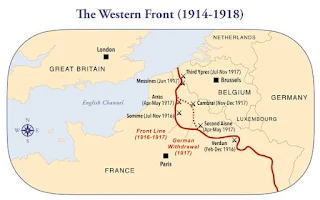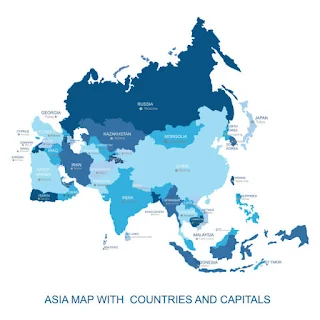The world has undergone significant transformations since 1945, with international politics playing a crucial role in shaping global events. This blog post will delve into the intricacies of international politics since 1945, exploring the key events, ideologies, and players that have influenced global affairs.
The Road to World War I (1871-1914)
The late 19th and early 20th centuries saw the rise of nationalism, imperialism, and militarism in Europe. The complex system of alliances, including the Triple Entente (France, Britain, and Russia) and the Triple Alliance (Germany, Austria-Hungary, and Italy), created a volatile environment in which a small spark could ignite a larger conflict.
The assassination of Archduke Franz Ferdinand of Austria-Hungary by a Serbian nationalist in June 1914 proved to be the spark that set off World War I. The war, which lasted from 1914 to 1918, involved many of the major powers of Europe and resulted in massive human suffering, economic devastation, and a profound impact on the global order.
The Interwar Period (1918-1939)
The Treaty of Versailles, signed in 1919, imposed harsh penalties on Germany, including significant territorial losses and reparations. The treaty's "war guilt" clause, which held Germany responsible for the war, was particularly resented by the German people.
The interwar period also saw the rise of fascist and nationalist movements in Europe, including the Nazi Party in Germany, led by Adolf Hitler. Hitler's aggressive expansionist policies, including the annexation of Austria and the Sudetenland in Czechoslovakia, went unchecked by the Western powers, who were pursuing a policy of appeasement.
World War II (1939-1945)
The invasion of Poland by Germany in September 1939 marked the beginning of World War II. The war, which lasted from 1939 to 1945, involved many of the major powers of Europe and Asia, including Germany, Italy, Japan, the United States, and the Soviet Union.
The war resulted in unprecedented human suffering, including the systematic persecution and murder of six million Jews and millions of others deemed undesirable by the Nazi regime. The war also saw the development and use of atomic bombs, which were dropped on the Japanese cities of Hiroshima and Nagasaki in August 1945.
The Cold War Era (1945-1991)
The Cold War was a defining feature of international politics in the second half of the 20th century. The conflict pitted the United States and its allies against the Soviet Union and its Eastern Bloc satellites. The Cold War was fought on multiple fronts, including proxy wars, espionage, and ideological battles.
The Truman Doctrine (1947) and the Marshall Plan (1948) were key initiatives launched by the United States to contain the spread of communism in Europe. The Soviet Union responded with the creation of the Warsaw Pact (1955), a military alliance of Eastern European communist states.
The Cold War also saw the rise of the Non-Aligned Movement (NAM), a group of states that sought to maintain their independence from the two superpowers. The NAM played a significant role in promoting decolonization and advocating for the rights of developing countries.
Decolonization and the Rise of the Third World
Decolonization was a major theme in international politics during the mid-20th century. As European powers granted independence to their colonies, new nations emerged in Africa, Asia, and the Middle East.
The Bandung Conference (1955) marked a significant milestone in the decolonization process. The conference, attended by representatives from 29 African and Asian countries, promoted solidarity among newly independent nations and advocated for the rights of developing countries.
The rise of the Third World also led to the creation of new international organizations, such as the United Nations Conference on Trade and Development (UNCTAD) and the Group of 77 (G77). These organizations aimed to promote economic cooperation and development among developing countries.
Détente and the End of the Cold War
The 1970s saw a period of détente, or relaxation, in relations between the United States and the Soviet Union. The Strategic Arms Limitation Talks (SALT) and the Helsinki Accords (1975) were key agreements that reduced tensions between the two superpowers.
However, the Soviet invasion of Afghanistan (1979) and the election of Ronald Reagan as U.S. President (1980) marked a return to Cold War tensions. The Soviet Union's collapse in 1991 brought an end to the Cold War, marking a significant shift in international politics.
The Post-Cold War Era (1991-Present)
The post-Cold War era has been marked by the rise of new global challenges, including terrorism, climate change, and pandemics. The United States has maintained its position as a global hegemon.
...while emerging powers like China, India, and Brazil have increasingly asserted their influence on the world stage.
The European Union (EU) has also played a significant role in international politics, promoting economic integration and cooperation among its member states. The EU's expansion into Eastern Europe and the Balkans has helped to promote stability and democracy in these regions.
Global Governance and International Institutions
Global governance has become an increasingly important aspect of international politics. International institutions like the United Nations (UN), the World Trade Organization (WTO), and the International Monetary Fund (IMF) play critical roles in promoting cooperation and addressing global challenges.
The UN, in particular, has been at the forefront of global governance efforts. The organization has played a key role in promoting peace and security, protecting human rights, and addressing sustainable development challenges.
The War on Terror and the Middle East
The September 11 attacks in 2001 marked a significant turning point in international politics. The United States launched the War on Terror, a global military campaign aimed at defeating terrorist organizations like Al-Qaeda.
The War on Terror has had far-reaching consequences, including the invasion of Afghanistan and Iraq, the rise of extremist groups like ISIS, and the destabilization of the Middle East.
The Rise of China and the Asian Century
The 21st century has seen the rapid rise of China as a global power. China's economic growth has been remarkable, with the country becoming the world's second-largest economy in 2010.
China's growing influence has also been felt in the realm of international politics. The country has become a key player in global governance, participating in international institutions like the UN, the WTO, and the G20.
The Future of International Politics
As we look to the future, it is clear that international politics will continue to be shaped by a complex array of factors, including globalization, technological change, and shifting power dynamics.
The rise of new global challenges, such as climate change, pandemics, and cybersecurity threats, will require international cooperation and collective action. The future of international politics will depend on the ability of states and international institutions to adapt to these changing circumstances and work together to address common challenges.
Conclusion
International politics since 1945 have been shaped by a complex array of events, ideologies, and players. From the Cold War to the post-Cold War era, the world has undergone significant transformations that have reshaped the global landscape.
As students of history and international studies, it is essential to understand the intricacies of international politics and the ways in which global events have shaped our world. By examining the key themes and developments in international politics since 1945, we can gain a deeper appreciation for the complexities of global governance and the challenges that lie ahead.
References
- Kennedy, P. (1987). The Rise and Fall of the Great Powers. New York: Random House.
- Waltz, K. N. (1979). Theory of International Politics. New York: McGraw-Hill.
- Keohane, R. O. (1984). After Hegemony: Cooperation and Discord in the World Political Economy. Princeton: Princeton University Press.
- Nye, J. S. (2004). Soft Power: The Means to Success in World Politics. New York: PublicAffairs.











